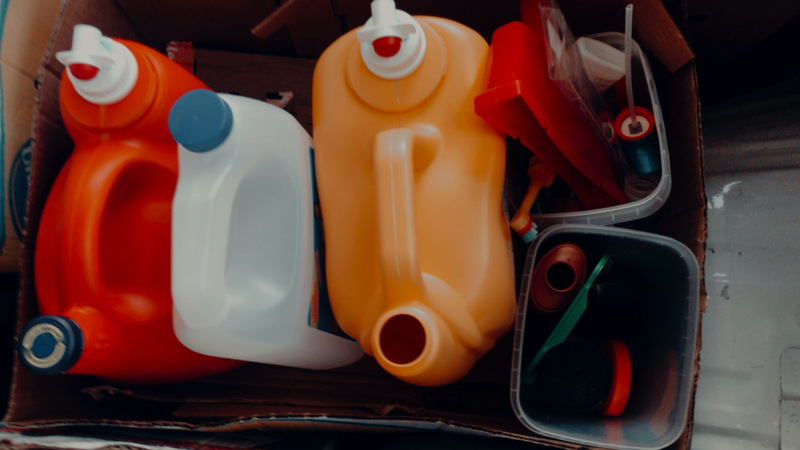Recycling in Panama

Think of plastic pollution like an overflowing tub in your bathroom, if you walked into that, probably the first thing you would do would be to turn off the tap — not grab a bucket and a mop.
Recycling is the mop says Josh Lepawsky, a professor at the Memorial University of Newfoundland who maps the international movement of electronic waste. And he’s not wrong.
So why bother recycling in Panama?
Separating our waste is an important step in the transition to a circular economy.
While there is an urgent need for legislation that will restrict the production of new plastic and promote refill systems, it’s not a reality yet. And since farmers’ markets and zero waste stores are only accessible for a tiny segment of the population, we’ve got to work with what we’ve got.
That’s not saying we can’t work to improve them or replace them with better ones as well.
Here’s what separating our waste helps us do:
1) acknowledge how much waste we produce.
2) identify how much of that waste is actually recyclable.
3) make more educated choices on what to consume.
According to the National Waste Management Plan of 2017, 86 percent of Panamanians did not separate their waste, and there was no framework for the collection of recyclable waste that year.
However, over the past 5 years, a lot has changed. A number of independent companies have created collection routes for recyclable waste and the country has launched several nationwide campaigns promoting recycling.
The country has also taken steps to create some legislation that could aid in holding importers, producers, manufacturers, distributors, marketers responsible.
Law No. 33 which introduced the Zero Waste Policy to Panama in 2018 takes the polluter pays approach (those who produce pollution bear the costs of managing it to prevent damage to human health or the environment).
The law also creates a National Education Program to promote a Zero Waste Culture.
Recycling in Panama
If you live at the beach, we encourage you to start separating your waste and take the next steps to figure out which materials you can recycle in your local community. If you do not have a local recycling depo @panamaoesteverde offers monthly recycling fairs in the Pacific Beach communities.
To find out which items they accept and information on upcoming fair locations check their Instagram
Before recycling you can also try to:
1) REDUCE the amount of plastic consumed in the household even if it is recyclable, by finding alternatives wherever possible. Organica offers a small refill station, and Riba Smith will let you put the sticker right on the fruit, so you don’t need to use any single-use plastic (except the sticker).
2) REFUSE single-use plastics (even bio-plastics*) when they are offered. At a restaurant its best to let them know you don’t want plastic cutlery or staws beforehand. In Panama plastic bags are not given out, the recyclable plastic bags are $25, however, if you can carry a cloth bag this is best, reusable grocery bags are made of plastic, they breakdown into microplastics pretty quickly in the tropics.
3) REUSE! When you do have an item that is not widely recyclable, for example, a #7 plastic container find another use for it. When we end up with single-use plastic if we hold ourselves accountable for what happens to that plastic we are more conscious of what we buy. It will often lead to buying higher-quality items that last longer (if we can), or choosing other products based on packaging.
*bio-sourced plastics that can be just as bad or even worse than traditional plastics. A majority of bio-sourced plastics, made with things like corn instead of oil, still aren’t biodegradable" - Claire Barlow, deputy head of the engineering department at the University of Cambridge
As consumers, these choices we make are our power. If you are able one small change in your daily life it makes a difference.
Take action today, here are some small changes you can make:
• Be conscious of how much plastic you purchase.
• Avoid beauty products with “polypropylene” or “polyethylene” in ingredients and use brands that offer refill systems.
• Buy in bulk, and use reusable cloth bags when you can or jars for stores that offer refill systems.
• Recycle your plastic. Visit @panamaoesteverde to see what is recyclable in the area.
• Consider using a cloth or paper bags instead of recyclable plastic.
• Ceramic, metal, glass, and wood are all more sustainable to replace items in your kitchen and bathroom.
• Stop buying bottled water: Use a reusable glass or metal bottle instead.
• Bring your thermos to the coffee shop. Or Tupperware to the fonda.
• Always bring a grocery bag–or grab a box in Panama they will give you one for free from the store.
Take small steps and give yourself grace!
Trending Tags
